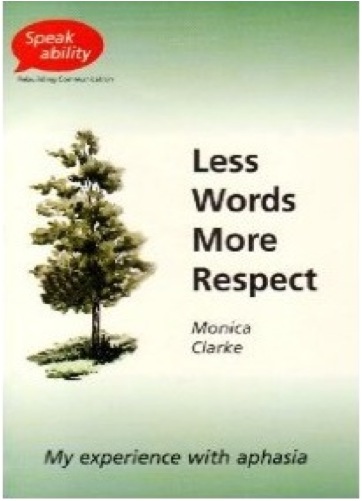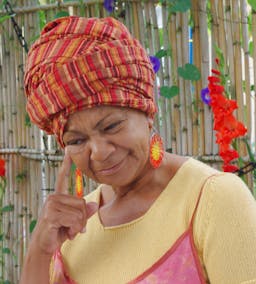DISABILITY and RELATIONSHIPS
Jan 21, 2015
Story

It happened on a lazy Sunday morning.
Suddenly he stared at me blankly, mouth foaming, grimacing lips jumping. Then his body contorted. He fell down and my life as I knew it fell down with him and shattered.
A stroke happens when the blood supply to the brain is cut off, killing brain cells, says the Stroke Association, UK. This happens to about 450,000 people in England each year.
For the rest of his life my John was paralyzed and unable to eat. Worst still, he couldn't speak either. Neither could he read nor write!
'Aphasia,' is what the experts at Speakability UK call it, this insidious disability which twists one's communication cables, leaving one perplexed and unable to understand or to be understood most of the time.
I couln't take it all in. It was the end of my relationship, the end of my world, I thought. I was frightened, bewildered.
The first eleven months of daily hospital visits left no time for grieving, no time to count the escalating losses: loss of my man as I knew him, loss of my job, loss of friends whose concern and support rapidly turned into embarrassed sympathy. And loss of sex.
I agreed with everything the doctors said. Yes, I nodded when they spoke in their circle, the whole educated team of them. The consultant, his senior registrars, the doctors, nurses and therapists in diplomatic order of importance. They knew what needed to be done.
When they said he should have a tube stuck into his stomach for artificial feeds because he couldn't swallow, it was a final judgement, removing our right to the joy of family meals. They said he needed a single bed to sleep on, and I just sat there agreeing with them, afterwards to grieve the loss of the final hope of intimacy between us, our double bed.
After eleven months we left the hospital in a cloud of fear. He in his wheelchair carrying our shattered relationship and a pump with which to flush his liquid feeds straight into his stomach, and me with a head heavy with broken dreams, guilt and anger.
My anger almost killed our relationship completely. I remember storming out one night, ready to abandon my mate to the claustrophobia of his dependancy.
I came back, but my raw insides were slashed anew each day by the sight of his helpless, constant waiting. Waiting to be cleaned, waiting to be fed, waiting to be shifted. Pleading without words and with soft eyes which melted my core, to be supported, to remain part of a life which had lost its meaning.
But something kept us going. Call it love, perhaps. I think it was gratitude. Life didn't stop. That was something to be grateful for.
It was gratitude which was to teach us the biggest lesson of all: the lesson of acceptance.
Our relationship unnoticably but firmly cemented afresh, with little things like stolen catnaps and immense joy when the odd word slipped out. I received deep satisfaction from the privilege of being allowed to look after someone who loved me more than his words could ever have expressed before they deserted him.
Nine years later a big part of me, intertwined with his soul, passed into the fire with him with gratitude for the pleasure of witnessing how truly great we as human beings can be when life breaks us. I strew his ashes mixed with a part of me to the wind with a song of praise for the strength which can be evidenced only through deep suffering.
I sang to the greatness of being shown by those like my John, who are able to turn suffering on its head so as to give support and growth to those who witness it.
Sudden disability is not the end. It can be the beginning of a new relationship. It is worth hanging in. It certainly helped me to grow.
See also by Monica Clarke:
(1) 'Less Words, More Respect-My experience with Aphasia' (1997, www.Speakability.org.uk )
(2) Video: 'More than Words' (1999, sibstru@post.tele.dk)
(3) 'Directions without Words' in Aphasia Inside Out, ed Susie Parr et al (2003, Open University Press www.openup.co.uk/ ).
This article is part of a writing assignment for Voices of Our Future a program of World Pulse that provides rigorous new media and citizen journalism training for grassroots women leaders. World Pulse lifts and unites the voices of women from some of the most unheard regions of the world.




